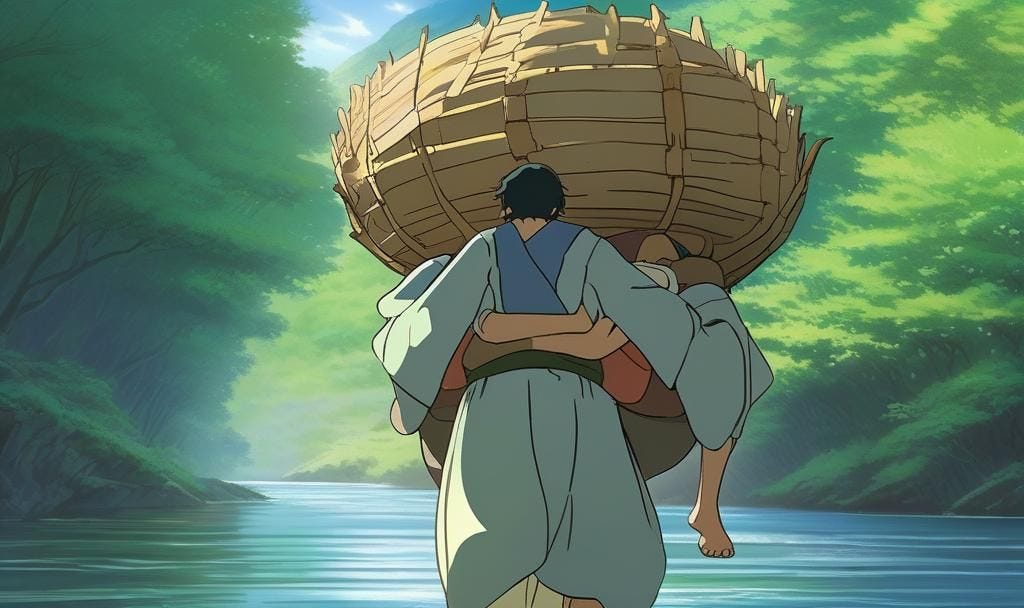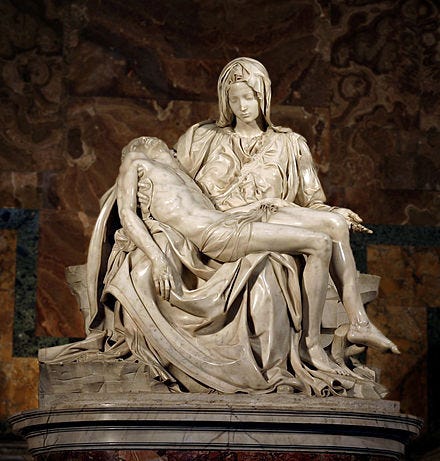The legend of Christophorus is about carrying the Jesus child across the river, and the river represents of course the streaming experience that is ours in this world of time and space. During the crossing the Jesus child grows until he almost becomes too much to carry. The story symbolizes the process of gradually identifying more and more with our right mind, the home of the Holy Spirit, and less and less with our ego self, that becomes merely, a tool, the way we participate in the world, and otherwise irrelevant. Ken Wapnick used to say:
If you look in the mirror in the morning, and you think that what your eyes see is you, there’s still work to do.
(Ken Wapnick)
Kaiser reflects on the experience that as John-consciousness grows less in us and Christ-consciousness grows, we learn an inner humility that was well expressed in the Gospel according to Matthew, verses 11:2-6):
Blessed is he, who does not take offense at me.
(MT 11:6)
Kaiser writes:
Thus we come to a deeper realization of the “carrying” of the Christ-Jesus-Child that becomes heavier all the time, and then the abused idyll of Christophoros fades away before the real experience of the neediness of our own soul. (JWK:Ascent to Life)
JWK relates this experience also to a painting by Borgognone in the Church of St. Ambrosius at Milan, of the two Jesus boys, the twelve year old Jesus amidst the scripture scholars and the earthly Jesus who returns to his mother who consoles him.
We might also be reminded about Helen Schucman’s experience when she was viewing the Pietà in person, when she heard Mary say to her: “This means nothing.” I.e. Mary is holding the broken body of what served as Jesus, but the meaning lies in the Resurrection, not the Crucifixion. The body is a temporary conveyance, but Spirit is Eternal.
Kaiser weaves in allusions to symbolism from different traditions, including the changing of the centers of consciousness, and the Christ body as our Solar Body, which symbolizes leaving this sublunar world of time and space, to live in what the Course would call the Real World.





